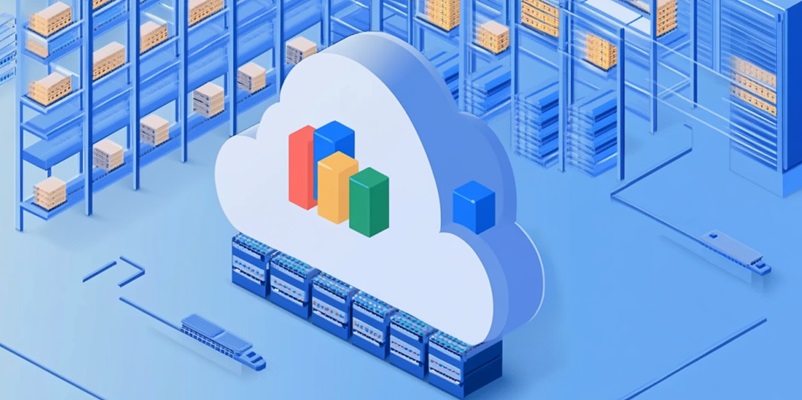The strategic partnership between ParallelDots, a leader in retail image recognition solutions, and Google Cloud aims to revolutionize the retail industry by providing consumer packaged goods (CPG) manufacturers and retailers with advanced, real-time shelf monitoring solutions. This collaboration signifies a critical step towards revolutionizing how in-store execution is managed, addressing long-standing challenges including poor data accuracy, inefficient audits, and slow reporting associated with traditional store audits and survey-based methods.
Transformative AI-Powered Solutions for Retail Challenges
Improving Data Accuracy
Combining ParallelDots’ AI-powered image recognition solutions with Google Cloud’s scalable and secure infrastructure ensures exceptionally high accuracy levels in real-time data capture. Retailers and CPG manufacturers can now achieve over 97% accuracy in data points such as on-shelf availability, share of shelf, planogram compliance, and price tag accuracy. This superior accuracy eliminates common errors like incorrect product placement, missing SKUs, and pricing inaccuracies, broadening the scope for enhanced brand visibility and increased sales.
High-level accuracy in data collection is not just a technical upgrade; it is a game-changer for the retail industry. Misplaced products or inaccurate pricing can lead to customer dissatisfaction and lost sales. By leveraging advanced AI algorithms coupled with robust cloud computing capabilities, this partnership delivers highly reliable data that retailers can trust to make crucial business decisions. This accurate data empowers store managers and executives to quickly identify and rectify issues, thereby ensuring a seamless shopping experience for customers.
Enhancing Store Operations
The integration of AI-powered image recognition technology into day-to-day store operations simplifies numerous processes that were previously time-consuming and prone to human error. Traditional in-store audits often require manual intervention and are labor-intensive, making them inefficient and slow. By employing ParallelDots’ cutting-edge technology, retailers can automate these audits, resulting in faster and more precise reporting.
One of the most significant advantages of this technology-driven approach is the real-time monitoring capability it offers. The ability to capture and analyze shelf data in real time allows retailers to respond promptly to stock discrepancies, helping to maintain optimal inventory levels. This agility in managing inventory not only enhances the shopping experience for consumers but also directly impacts the bottom line by reducing instances of stockouts and overstocking.
Streamlined Deployment and Enhanced ROI
Simplified AI Training
The partnership between ParallelDots and Google Cloud also focuses on streamlining the deployment process and simplifying AI training. This is particularly beneficial for retailers as it reduces the time and resources required to implement these advanced solutions. The collaborative effort ensures that the AI models are trained effectively and efficiently, offering a higher return on investment (ROI) compared to standalone solutions.
Simplified AI training also translates to easier integration and quicker adaptation within existing systems. Businesses can rapidly deploy these solutions across multiple stores with minimal disruption, enabling a more seamless transition to AI-powered operations. This efficiency is crucial for retailers looking to remain competitive in an increasingly tech-driven marketplace.
Integration and Data Analysis
One of the standout features of this collaboration is the ability to integrate and analyze ParallelDots’ SKU-level shelf data alongside other datasets within the Google Cloud platform. This integrated approach eliminates the need for manual data integration, further enhancing ROI. With all critical data housed in a single, secure platform, retailers can conduct more comprehensive analyses and derive valuable insights that drive strategic decision-making.
By leveraging Google Cloud’s robust infrastructure, retailers not only ensure the security of their data but also benefit from scalable solutions that grow with their business needs. This partnership is expected to solidify ParallelDots’ market position, particularly given its proven track record of successful deployments within Fortune 500 CPG companies. The confidence instilled by such successful implementations underscores the potential for widespread adoption across the retail sector.
Industry Impact and Future Prospects
Strategic Importance and Mutual Benefits
Statements from key executives highlight the strategic importance and mutual benefits of this partnership. Bikram Singh Bedi of Google Cloud India emphasizes the goal of providing a secure and efficient infrastructure to facilitate complex tasks, while Ankit Singh of ParallelDots points to this collaboration as a milestone in creating a top-tier retail shelf insights platform. These endorsements signify a shared vision for leveraging technology to address persistent challenges in the retail industry.
The convergence of AI and cloud technologies in this partnership not only enhances technical capabilities but also sets a new benchmark for industry standards. This collaboration showcases how strategic alliances can drive innovation and operational efficiency, offering a blueprint for future technological advancements in retail.
Driving Efficiency and Sales Outcomes
The collaboration between ParallelDots, known for its retail image recognition technology, and Google Cloud is set to transform the retail landscape. This strategic alliance focuses on delivering real-time shelf monitoring solutions to consumer packaged goods (CPG) manufacturers and retailers. By leveraging advanced technology, this partnership addresses significant issues that have plagued the industry for years, such as poor data accuracy, inefficient audits, and the delays caused by traditional store audits and survey methods.
The combined expertise of ParallelDots and Google Cloud aims to enhance in-store execution management. With real-time data and improved accuracy, retailers can better manage inventory, optimize shelf space, and improve overall store performance. This partnership also enables more efficient auditing processes, reducing the time and effort required to gather and analyze data. Ultimately, it represents a pivotal shift towards smarter, data-driven retail practices, ensuring that both manufacturers and retailers can respond swiftly to market demands and consumer needs.

